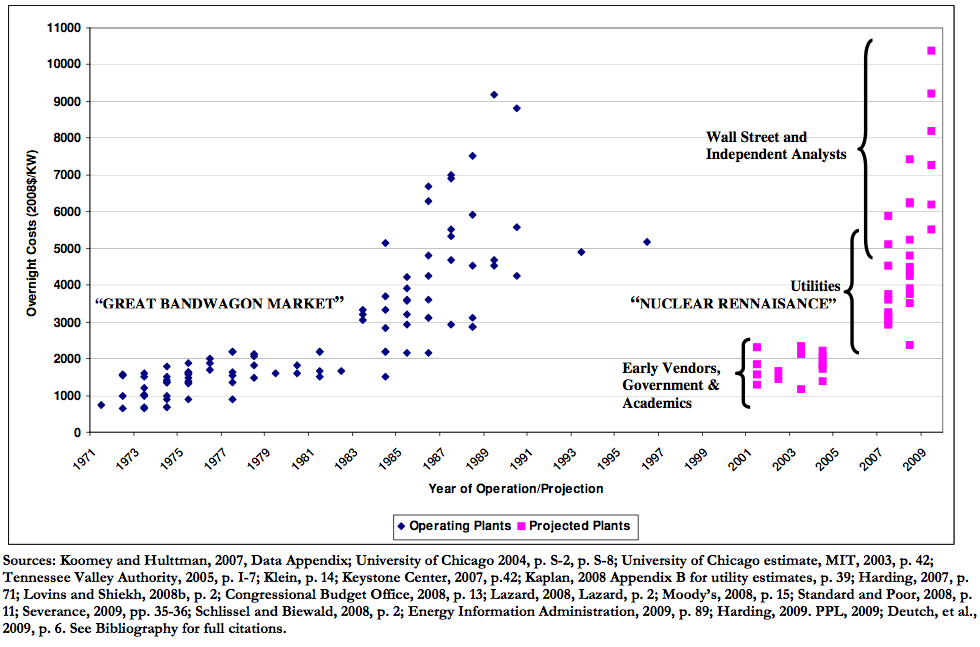There is a clear pattern of deception on the part of the nuclear industry. They use false cost estimates that elicit huge government funding windfalls and then reality set in as the real costs have to be faced.

See the pattern?
Here is the link:
http://www.olino.org/us/articles/2009/11/26/the-economics-of-nuclear-reactors-renaissance-or-relapseThe Economics of Nuclear Reactors: Renaissance or Relapse?
by Mark Cooper
Within the past year, estimates of the cost of nuclear power from a new generation of reactors have ranged from a low of 8.4 cents per kilowatt hour (kWh) to a high of 30 cents. This paper tackles the debate over the cost of building new nuclear reactors. The most recent cost projections for new nuclear reactors are, on average, over four times as high as the initial nuclear renaissance projections. The additional cost of building 100 new nuclear reactors, instead of pursuing a least cost efficiency-renewable strategy, would be in the range of $1.9-$4.4 trillion over the life the reactors.
The key findings of the paper as follows:
- The initial cost projections put out early in todays so-called nuclear renaissance were about one-third of what one would have expected, based on the nuclear reactors completed in the 1990s.
-The most recent cost projections for new nuclear reactors are, on average, over four times as high as the initial nuclear renaissance projections.
-There are numerous options available to meet the need for electricity in a carbon-constrained environment that are superior to building nuclear reactors. Indeed, nuclear reactors are the worst option from the point of view of the consumer and society.
-The low carbon sources that are less costly than nuclear include efficiency, cogeneration, biomass, geothermal, wind, solar thermal and natural gas. Solar photovoltaics that are presently more costly than nuclear reactors are projected to decline dramatically in price in the next decade. Fossil fuels with carbon capture and storage, which are not presently available, are projected to be somewhat more costly than nuclear reactors.
-Numerous studies by Wall Street and independent energy analysts estimate efficiency and renewable costs at an average of 6 cents per kilowatt hour, while the cost of electricity from nuclear reactors is estimated in the range of 12 to 20 cents per kWh.
The additional cost of building 100 new nuclear reactors, instead of pursuing a least cost efficiency-renewable strategy, would be in the range of $1.9-$4.4 trillion over the life the reactors. Whether the burden falls on ratepayers (in electricity bills) or taxpayers (in large subsidies), incurring excess costs of that magnitude would be a substantial burden on the national economy and add immensely to the cost of electricity and the cost of reducing carbon emissions.